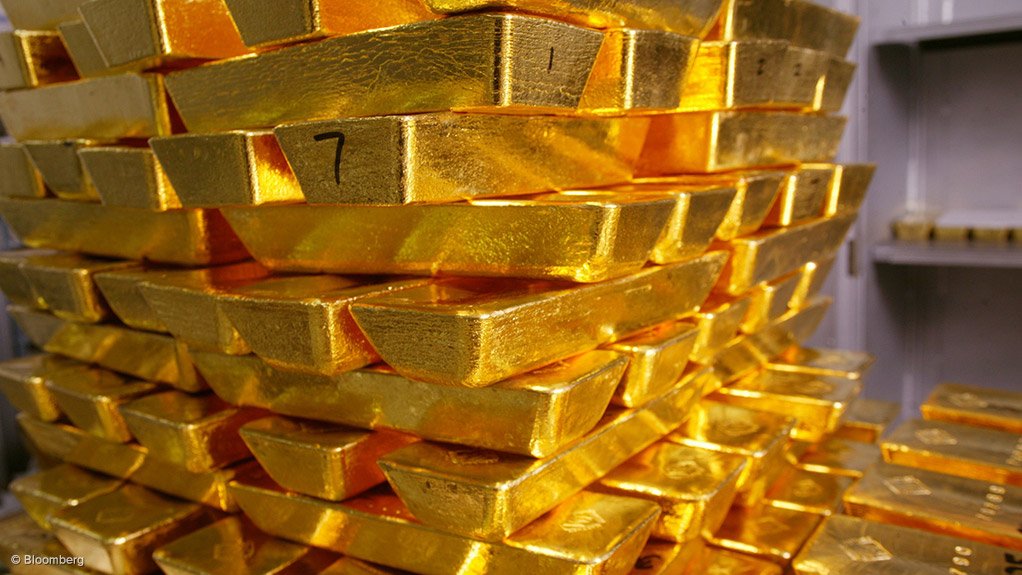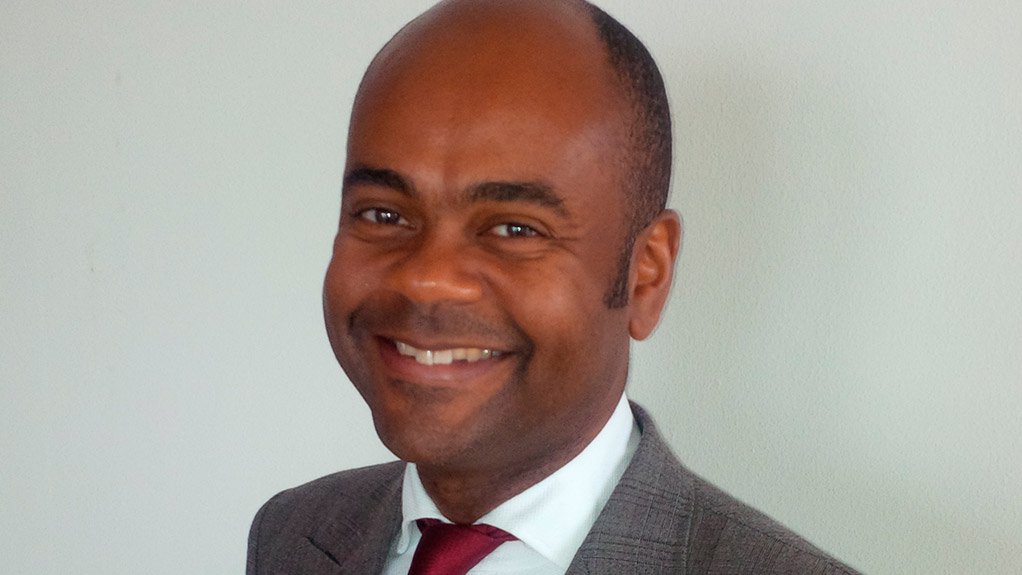Gabon builds up strategic gold reserves



GOLDEN OBJECTIVES It is Gabon’s goal to increase its production of gold by 50 t each year by 2025
Photo by Bloomberg
FABRICE NZE-BEKALE If the State buys gold from artisanal miners, it will inject liquidity into rural communities that live paradoxically in poor conditions
Following the examples of Venezuela and Malaysia, Gabon has started building up its national gold reserves as part of the strategy to strengthen the country’s economy by providing it with the option to sell or pledge these reserves, if required.
Gabon State-owned mining company Société Équatoriale des Mines (SEM) CEO Fabrice Nze-Bekale explains that the establishment of a national gold reserve is by definition a long-term strategy and is similar to saving.
“As everyone knows, saving modest sums of money on a regular basis is better than saving bigger sums once in a while. Therefore, this strategy can be followed with little increments. There is no need to allocate billions of dollars to it every year. However, regular contributions are required to ensure the reserves are built up over time,” he says.
Moreover, Nze-Bekale notes that it would be easy for any country to buy gold on international markets that are liquid. However, Gabon has an existing gold sector, which makes it possible for the country to buy its gold locally.
“It is safe to say that buying [gold] from local producers, particularly from artisanal miners, could have significant positive ripple effects on our domestic mining sector,” he states.
Nze-Bekale says that if the State buys gold from artisanal miners, it will inject liquidity into rural communities that live in poor conditions.
“Far from being social welfare, this will remunerate artisans for their work and have a major social impact at the same time.”
He adds that, if artisans receive training, this will improve their production techniques and their yields, which could contribute to the emergence of indigenous mining operators.
Further, according to Gabon’s 2013 National Industrialisation Strategy, the country offers strong gold potential, despite a decline in its artisanal production from an average of 600 kg/y between 1936 and 1960 to its cur- rent 300 kg/y.
Nze-Bekale says there are two main reasons why gold presents a major opportunity for Gabon in developing its local mining sector. The first is that it reaches its maximum value-add right from its extraction and, therefore, can generate cash flows faster than most other minerals.
The second is that gold remains one of the most liquid financial instruments in the world, despite the significant fall in its price since 2013.
Therefore, he asserts, it is Gabon’s goal to increase its production of gold by up to 50 t each year by 2025, while also preserving the environment.
A short list of priority projects has been compiled to meet this target, including the creation of a $500-million gold fund.
Nze-Bekale explains that this fund will capitalise on the revenues generated from gold extraction.
“The gold fund could be used for rainy days or to mitigate some financial risks to which the State might be exposed. “The State could sell some of its gold to fund infrastructure projects or as collateral to raise project financing at a cheaper rate, for example.”
He states that the gold could be sourced through a production sharing mechanism to be set up with industrial miners as well as by buying all the production of small-scale miners and artisans.
However, Nze-Bekale notes that the country’s new mining law that was published in the Official Gazette in June 2014 does not provide for any production sharing mechanism.
He says, therefore, the only option left for the State is to buy gold produced by small-scale mines and artisanal miners and this source of supply already exists.
Nze-Bekale points out that SEM has a network of trading posts throughout the country to buy gold from artisans.
Those branches sit under the roof of the Gabonese Counter for Gold Collection (CGCO), which is majority-owned by SEM. The CGCO opened its first branch in February 2013 and now operates six branches throughout the country.
He highlights that the CGCO has collected 84 kg of gold powder and nuggets since its inception.
Nze-Bekale adds that the CGCO is con-tinuing to expand its network of branches to assist the State in collecting more gold.
“The CGCO already produces doré bars and it should aim to refine its bars up to a purity level of 99.99% at minimum. “This will require some investment in human capital to buy the necessary technical compet-ences in chemical processes and in modern equipment,” he says.
Additionally, Nze-Bekale comments that the CGCO should be able to move along the gold value chain to take advantage of the opportunities offered by trading.
“For the real value of gold is not physical but immaterial, as exchange traded funds or investment gold accounted for 26% of global gold demand in the first quarter of 2015.
“Eventually, the CGCO could position Libreville as little Dubai, by making it into the preferred gold trading hub in the Central and West African region, and the gateway of gold exports to the rest of the world,” he concludes.
Comments
Press Office
Announcements
What's On
Subscribe to improve your user experience...
Option 1 (equivalent of R125 a month):
Receive a weekly copy of Creamer Media's Engineering News & Mining Weekly magazine
(print copy for those in South Africa and e-magazine for those outside of South Africa)
Receive daily email newsletters
Access to full search results
Access archive of magazine back copies
Access to Projects in Progress
Access to ONE Research Report of your choice in PDF format
Option 2 (equivalent of R375 a month):
All benefits from Option 1
PLUS
Access to Creamer Media's Research Channel Africa for ALL Research Reports, in PDF format, on various industrial and mining sectors
including Electricity; Water; Energy Transition; Hydrogen; Roads, Rail and Ports; Coal; Gold; Platinum; Battery Metals; etc.
Already a subscriber?
Forgotten your password?
Receive weekly copy of Creamer Media's Engineering News & Mining Weekly magazine (print copy for those in South Africa and e-magazine for those outside of South Africa)
➕
Recieve daily email newsletters
➕
Access to full search results
➕
Access archive of magazine back copies
➕
Access to Projects in Progress
➕
Access to ONE Research Report of your choice in PDF format
RESEARCH CHANNEL AFRICA
R4500 (equivalent of R375 a month)
SUBSCRIBEAll benefits from Option 1
➕
Access to Creamer Media's Research Channel Africa for ALL Research Reports on various industrial and mining sectors, in PDF format, including on:
Electricity
➕
Water
➕
Energy Transition
➕
Hydrogen
➕
Roads, Rail and Ports
➕
Coal
➕
Gold
➕
Platinum
➕
Battery Metals
➕
etc.
Receive all benefits from Option 1 or Option 2 delivered to numerous people at your company
➕
Multiple User names and Passwords for simultaneous log-ins
➕
Intranet integration access to all in your organisation



















